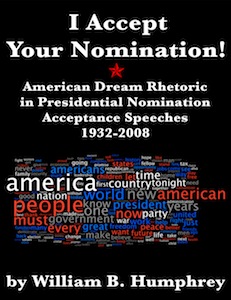First, this was a deeply upsetting event, and it’s hard to grasp or process mentally. It would be anyway, but it’s especially hard as a native of New England — we have a lot of regional solidarity and closeness. For example, my mother texted me to remind me she and I had stopped right near that school this past May to get lunch while traveling between Delaware and Massachusetts.
Second. The bulk of the people who tell us not to “politicize” mass shootings are invariably gun advocates. They are aware that this *is* a political issue, whether in or out of the heat of the moment, and that if they can delay any immediate reaction when momentum in favor would be highest, that it’s even less likely any gun control legislation will be introduced, let alone passed. The rest of people who say not to politicize it are usually sincerely trying to keep the focus where it ideally would be, on the loss of life and the mourning families — but they are, in fact, enabling the other side, by silencing the gun control advocates who have been on the losing side for a decade. Silence is a de facto advantage to the gun lobby, since they are in the dominant position in the American political system. In the past two years, there have been at least a half dozen horrific mass shootings, and the gun lobby has effectively prevented the introduction or consideration of even modest, reasonable measures to tighten up legal acquisition of guns, restrictions on the types of guns sold to civilians, or the extended clips/magazines made legally available. They even managed to force people to stay silent in the aftermath of an attempted assassination of an elected member of Congress, which was quite obviously political, by telling people not to politicize the tragedy. Simply put, our government generally responds to problems only when there is broad public attention on it and a demand for solutions, particularly after crises hit, and gun violence problems are no exception — which makes it *necessary* to discuss this immediately, instead of waiting until everyone not immediately connected to a given tragedy has had time to “forget” till the next incident. It’s amazing seeing the comments about how we “can’t jump to conclusions” or be overly hasty because don’t know all the details yet, as if this weren’t something that was happening every few months, as if we can’t generalize that there’s a problem we need to act on. This isn’t some unprecedented and unforeseeable event, it’s something that keeps happening over and over. Other industrialized nations don’t have this problem (to the same level or frequency, even with the 3 unprecedented major incidents in Europe in 2011) because they have pretty strict controls — so much for the If Guns Are Outlawed Only Outlaws Will Have Guns platitude — as well as a lack of a “gun culture” (and yes better health care systems that help people struggling with mental illnesses get adequate help). Here, this is something that now seems to be accepted as an unavoidable part of our reality, that every few months a dozen or more people will be killed at once inexplicably (or that random gun violence will happen on city street corners daily, or that some number of wives and children will be shot dead in their homes by abusive husbands and fathers). Telling people not to talk about it at the time when something happens is, whether intentional or not, effectively an endorsement of the view that this will be our continued reality and that we should just accept it and shouldn’t do anything about it. If we don’t accept this premise, we *have to* talk about it and we have to talk about policy and political solutions, because this *is* a political issue, like it or not. If it weren’t, the NRA wouldn’t spend so much money each year on elections. Honestly, I don’t really think anything will come of this either, because the gun lobby has secured their position so strongly, but it doesn’t mean I have to like it or be quiet about it or wait until it’s faded from the news cycle. I’m tired of being silenced on gun control because I’m supposed to only be joining the collective mourning. I’m capable of holding more than one thought in my head at a time, and so are the rest of Americans. The gun advocates just don’t want that to happen because then they might actually have a fight on their hands in the halls of power.




